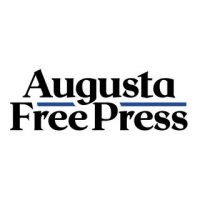
The importance of connectivity is paramount to each of our homes, not just as a utility but as a fundamental resource for daily life. Through historic investments in digital equity grants, broadband infrastructure expansion, and low-income affordability initiatives like the Affordable Connectivity Program, the Biden Administration has made significant strides in expanding connectivity to underserved populations that are too often on the wrong side of the digital divide.
However, I’m concerned about the Federal Communications Commission’s recent proposal to ban bulk billing agreements for broadband – a tool that can be vital for delivering broadband to those living in affordable housing.
By allowing housing providers and local governments to negotiate significantly reduced rates with internet providers on behalf of residents living in affordable housing, bulk billing simplifies internet adoption and makes it viable for low-income residents in affordable housing to get online at extremely low rates, and in some cases free. These partnerships are vital for broadband adoption in underserved communities and will only become more critical given the scheduled expiration of the ACP next month, which will cause over 23 million Americans to have their internet bills increase significantly in the near future, threatening the connectivity of many.
Almost 500,000 Virginians benefit from ACP, and we must do everything we can to ensure they aren’t forced offline. Bulk billing partnerships through affordable housing could be an effective tool to do that, which is why it’s imperative the FCC doesn’t eliminate it, especially now.
The FCC’s intent isn’t to eliminate these affordable housing partnerships. Instead, it’s to eliminate unethical businesses by some apartment landlords who abuse bulk billing to make a profit off tenants through hidden fees that they don’t disclose. This intent is wholly justified, as are the Biden Administration’s broader efforts to cut junk fees. While the intent is justified, it’s impossible to ignore the unintended negative consequences that this proposal would have on other digital equity initiatives for which bulk billing is essential.
Many Virginians already use a disproportionate share of their limited income on essential utilities. Without the ACP’s subsidy or the reduced costs that bulk billing provides, many residents in affordable housing could find themselves without viable options to get online. Broadband has become indispensable for everything from remote work and online education to healthcare services, which is why we cannot allow these communities to get stripped of the opportunities that come with an internet connection. The FCC’s proposal needs careful reconsideration to avoid leaving vulnerable communities without essential services.
It’s crucial to strike a balance that targets malpractice without stripping away essential services that facilitate digital inclusivity. More targeted rules could effectively prevent the exploitation of tenants while preserving the collective bargaining power that makes broadband affordable for those who might otherwise be offline.
Morgan Jameson resides in Fairfax.









